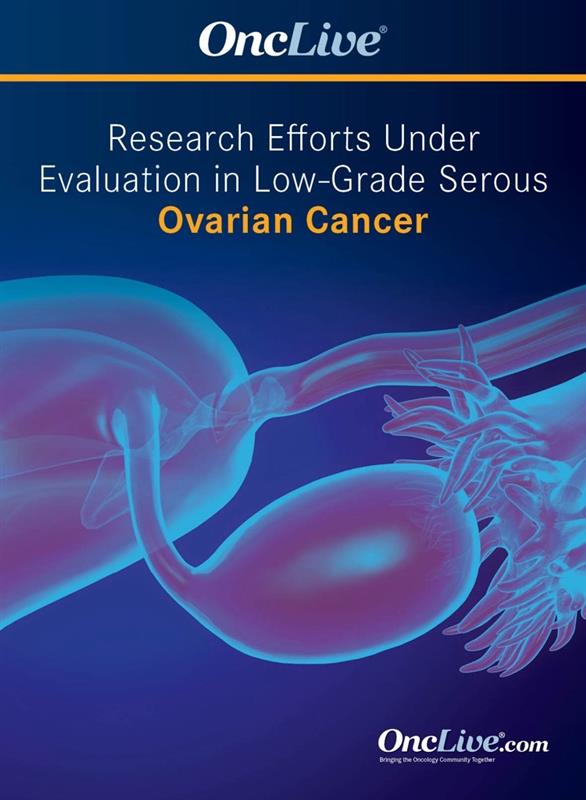Commentary
Video
Dr Brown on Ongoing Trials Targeting the RAS/MAPK Pathway in Ovarian Cancer
Author(s):
Jubilee Brown, MD, discusses ongoing investigations into treatments that target the RAS/MAPK pathway in patients with ovarian cancer.
Jubilee Brown, MD, professor, division director, gynecologic oncology, Atrium Health Levine Cancer Institute, discusses ongoing investigations into treatment combinations that target the RAF/RAS/MAPK pathway in patients with ovarian cancer.
Exciting research is currently underway exploring the potential for ovarian cancer treatments targeting the RAS/MAPK pathway, Brown begins. The phase 1/2 FRAME trial (NCT03875820) was the first to delve into this pathway, focusing on a combination approach involving RAF/MEK inhibitors and FAK inhibitors in patients with advanced solid tumors, she explains. The findings from the FRAME study revealed a 46% overall response rate (ORR) within the low-grade serious ovarian cancer cohort, signaling significant promise in this area of study, Brown reports.
Notably, based on data from the FRAME study, in 2021, the combination of the investigational agents that FRAME evaluated—the RAF/MEK inhibitor avutometinib (VS-6766) plus the FAK inhibitor defactinib (VS-6063)—received breakthrough therapy designation from the FDA for patients with recurrent low-grade serous ovarian cancer who had received at least 1 prior line of therapy.
Building upon these promising results, the subsequent phase 2 ENGOT-ov60/GOG-3052/RAMP 201 trial (NCT04625270) further evaluated avutometinib given with or without defactinib in patients with recurrent low-grade serous ovarian cancer, Brown says. These trial findings solidified the potential efficacy of this combination and revealed a notable 45% (n = 8; 95% CI, 26%-64%) ORR in the combination arm (n = 29), showcasing durable responses alongside good tolerability, she elucidates, adding that these results sparked further investigative interest in this combination.
The encouraging efficacy and safety signals observed in RAMP 201 have paved the way for the launch of the phase 3 RAMP 301 trial (NCT06072781), aimed at a more in-depth exploration of these promising therapeutic avenues, she concludes.
Overall, the evolution of research focused on the RAS/MAPK pathway holds potential for improved outcomes for patients with low-grade serous ovarian cancer following the initial successes of the FRAME and RAMP 201 trials, which have propelled the field forward, sparking new investigations and trials, such as RAMP 301.










